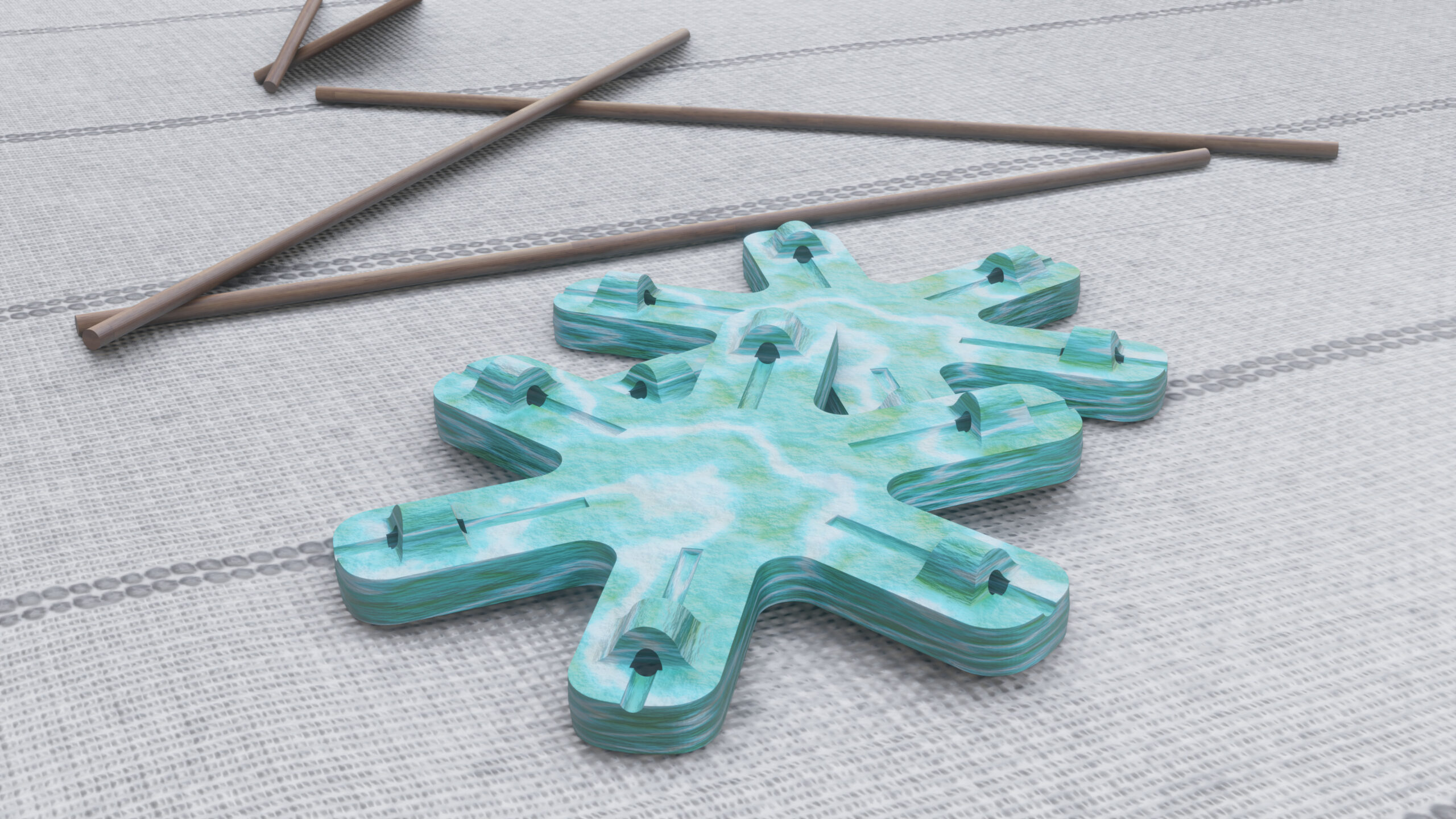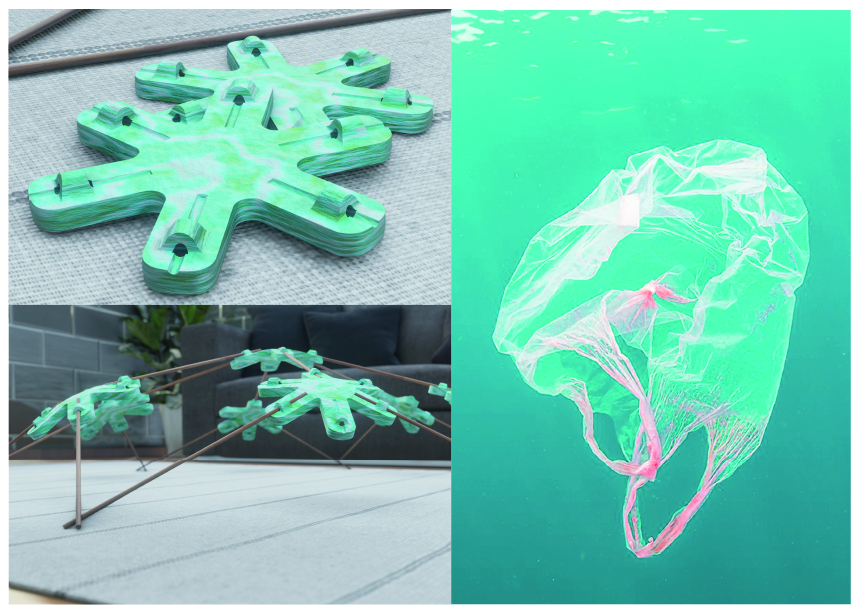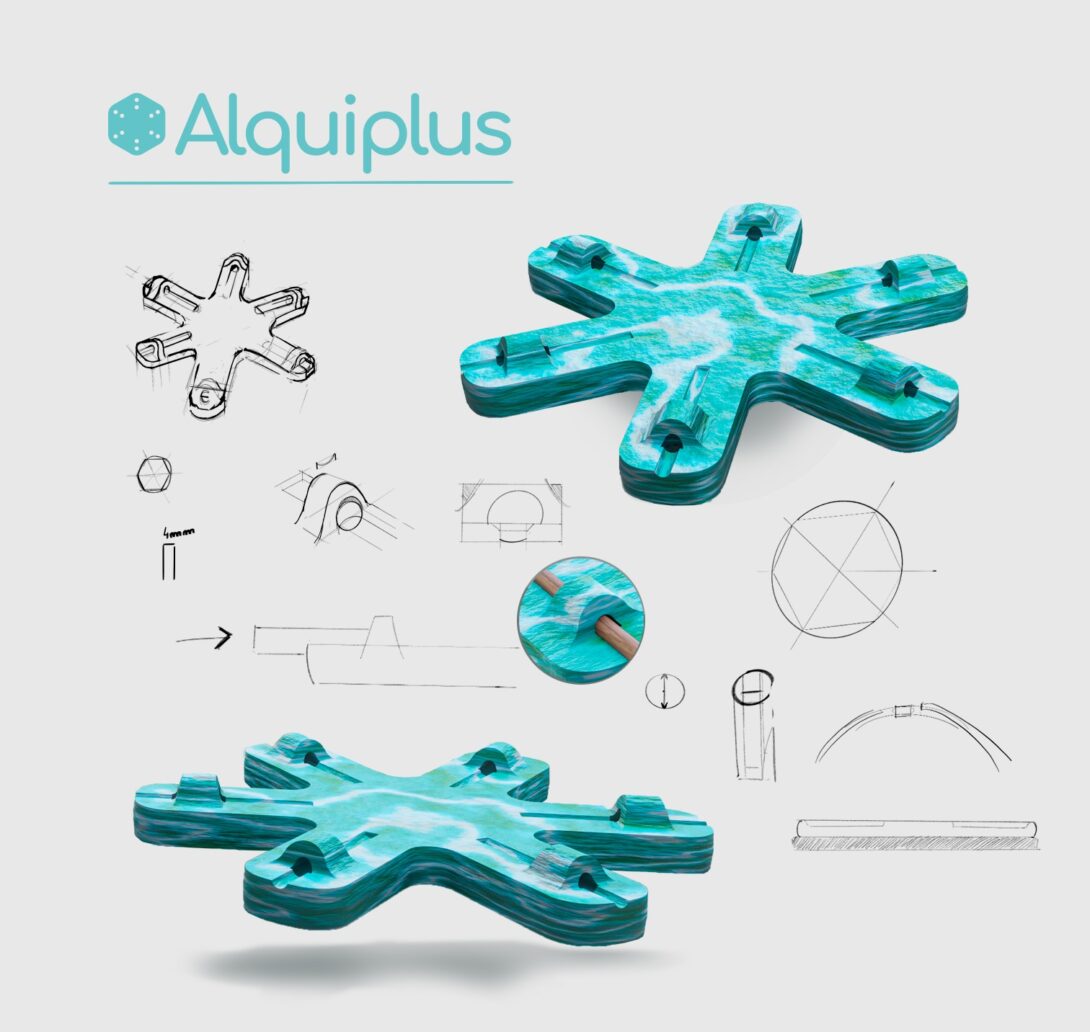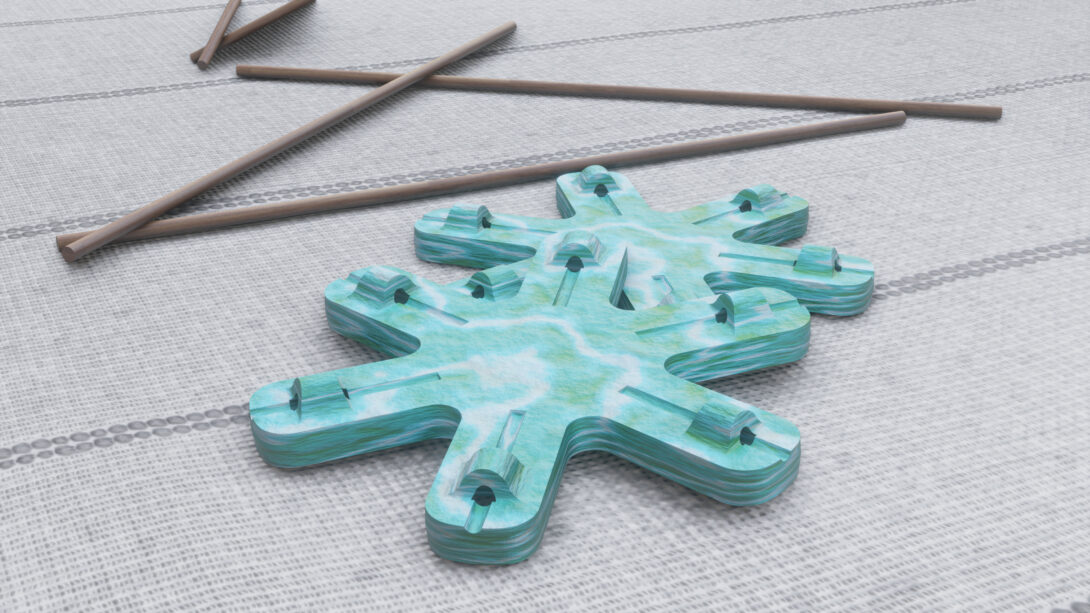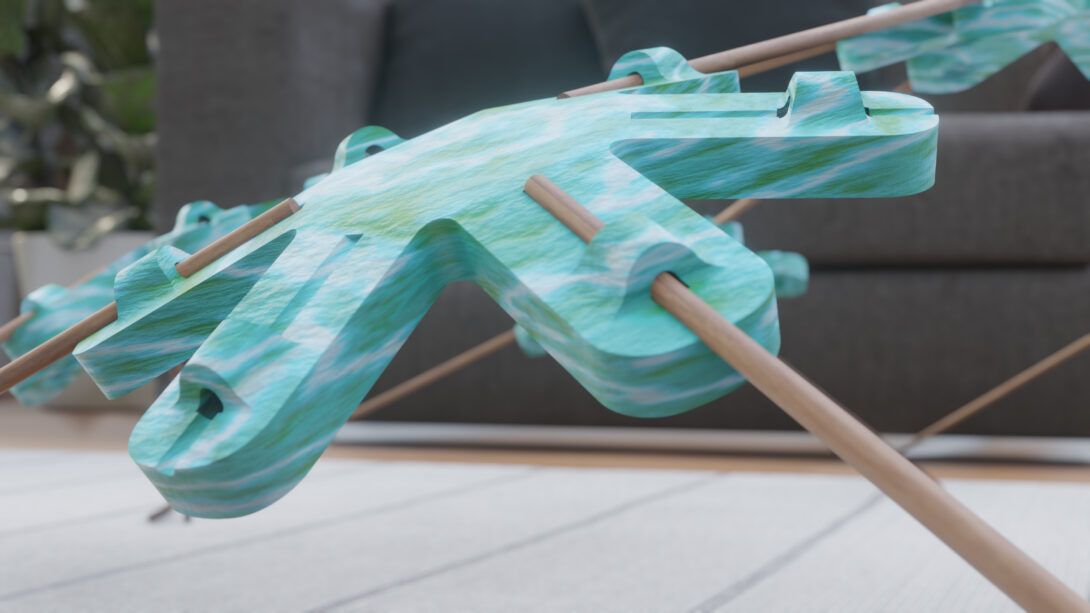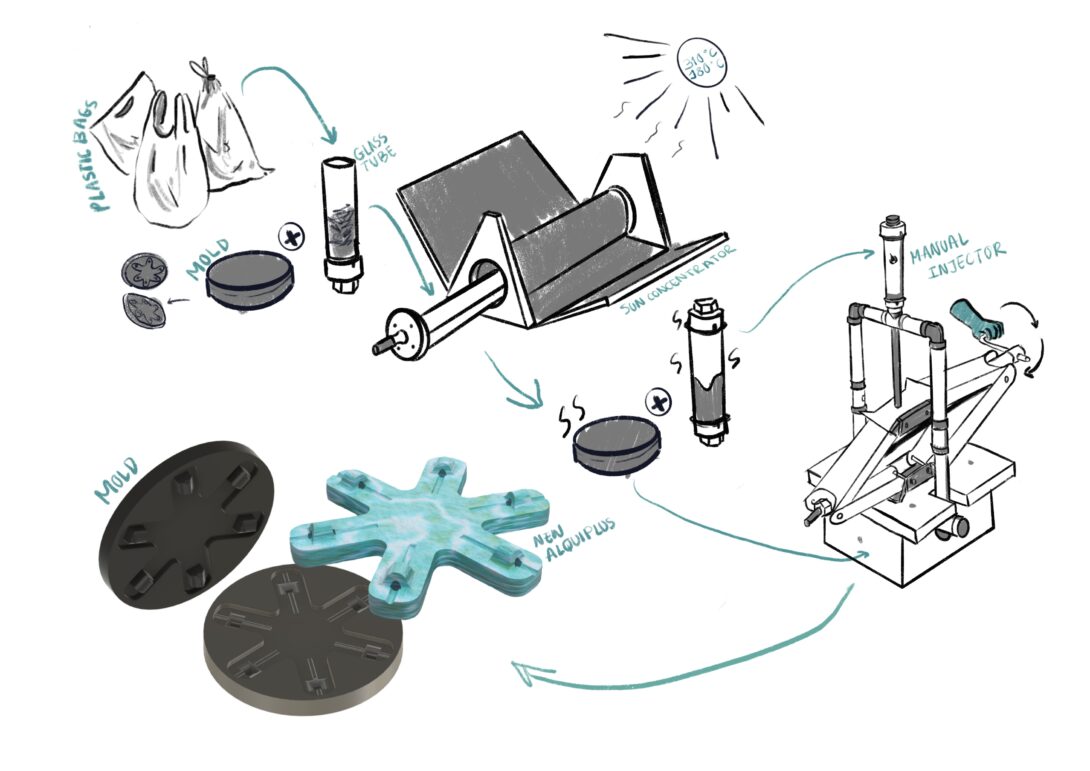About the project
Alquiplus integrates the eco-technological prowess of sun powered plastic recycling with the educational innovation of Alquimétricos. Through solar-powered decentralization and strategic material choices, it transforms disposable plastic into therapeutic alchemical toys, offering a sustainable solution that bridges environmental consciousness with intellectual development.
Our proposal aims to articulate concepts housed in the context of distributed and open design – Sun powered plastic recycling and the open source project Alquimétricos. Using only solar thermal energy, without the need for electricity, for plastic recycling could be a response to inclusive sustainability, making it easier for anyone to renew objects that were in the process of decomposing and give them a new lease of life. Alquimétricos, which is also part of Distributed and Open Design (an innovative design method that takes advantage of the fact that the whole world is connected via a click for data mobility, so that it can be self-produced, also rethinking the choice of materials, which is made by the individual themselves), has been a trend in the field of education because it also allows the manufacture of low-cost teaching objects and lowers the barrier of access to teaching technology for places with fewer opportunities.
These objects encourage the logical construction of three-dimensional products and structures. When we come into contact with these two concepts, we realize the relevance of both from a social and sustainable point of view. By exploring the consistency of these didactic objects, we realized that they can in fact be useful at other levels, outside of education. Therefore, our project aims to develop the extension of properties using solar powered plastic injection technology, promoting the transformation of plastic into new alchemicals with an ideal that is not only educational, but also therapeutic and medicinal. As a result, the object’s function grows, increasing the range of possibilities, thanks to the sustainability that the solar concentrators propose and the practicality that Alquimétricos allows us.
Our main concern is how to adapt the plastic produced by this process to the flexibility that alchemical toys have, so that they really extend their DIY function. This flexibility is achieved thanks to the malleability of the E.V.A. material, which is a thermoplastic composed of ethylene and vinyl acetate. In this way, we concluded that these objects have an incredible capacity for impact absorption, thermal insulation and affordable molding flexibility.
In association with the technology we intended to implement, plastic injection, we resorted to the process of project development in design, materializing our ideas, reflections and other issues in sketch format. We went through several versions of the project in 3D modeling, in which we applied two options of the bridge connecting the vertices of the hexagon or without it. We also experimented with the hexagonal shape divided into triangles, without the middle connection, which we noticed was more flexible, although we hadn’t yet applied the holes where the rods pass through to build the solids. This would be a problem when injecting the plastic, because it would cause it to cool down quickly.
In the next phase, we created a star shape that, in a way, maintains the hexagon of the Alquimétricos, but nevertheless creates a slightly different silhouette and joining techniques. As such, this shape would better assist in shaping the mold and fitting the rods together. We concluded that this piece will be made from Polyethylene (LLDPE), a Linear Low Density plastic often used in supermarket bags. As a result of the ecosystem context we are currently living in, plastic is becoming corrosive to our health and stability, yet more than 300 million tons of plastic are produced every year.
In order to respond to this paradigm, alquiplus, together with the innovative un powered plastic recycling process, promises to re-evaluate the disposable plastic used in bags and reinterpret it on the social scene, sharing the idea of sustainability and recycling, promoting social projects for schools and associations (such as the Padre Amadeu Pinto Youth Center) to collect plastic from the most polluted areas of Portugal and convert it into melted plastic.
